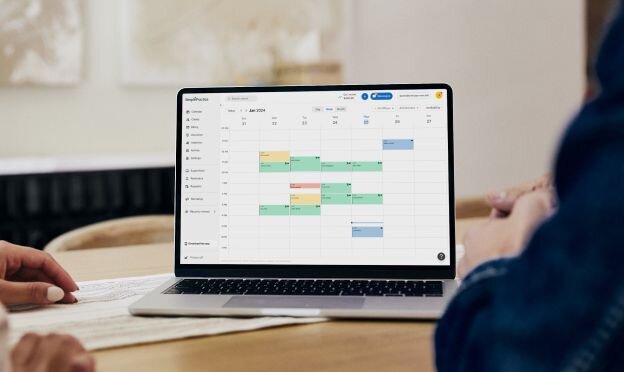Mental health ICD-10 codes cheat sheet
Download the mental health ICD-10 codes cheat sheet
Download free resource
Enter your email below to access this resource.
By entering your email address, you are opting-in to receive emails from SimplePractice on its various products, solutions, and/or offerings. Unsubscribe anytime.

To help make sure you have the correct, up-to-date mental health diagnosis codes information, we created this mental health ICD-10 codes cheat sheet for behavioral health professionals.
Using the correct mental health diagnosis codes can help avoid unnecessary delays in insurance reimbursement and save valuable time.
To better understand health trends, SimplePractice compiled this list of the top 20 ICD-10 codes.
This printable list of ICD-10 codes for mental health includes info on the code and diagnosis as well as where each code ranks on the top 10 list.
What are ICD-10 codes?
The International Classification of Diseases, Tenth Revision (ICD-10) is a guide published by the World Health Organization (WHO). Clinicians in the U.S. refer to the ICD-10-CM, a clinical modification of the original WHO’s ICD-10, for diagnosis codes.
These guides help to facilitate the worldwide use of standard diagnostic language and codes to describe mental health conditions, in order to measure and track health information around the world.
What are the top 20 mental health diagnosis codes?
To create this mental health ICD-10 codes cheat sheet, SimplePractice gathered the top mental health ICD-10 codes used by over 225,000 U.S.-based clinicians, who rely on SimplePractice’s HIPAA-compliant electronic health record (EHR) system to manage their practices, automate administrative work, and streamline filing and tracking insurance claims.
This mental health ICD-10 codes cheat sheet can provide insight into the most commonly diagnosed mental health conditions in America over the past year.
The top 20 mental health diagnosis codes were:
Understanding the ICD-10 codes mental health list
The number one billed ICD-10 code was F41.1—generalized anxiety disorder. This may not be surprising, as this diagnosis was also the top-billed code in 2021, 2019, and 2017.
Adjustment disorders, of various specificities, appear four times on the mental health ICD-10 codes cheat sheet. This disorder is characterized by emotional or behavioral symptoms that develop after a stressful event—such as a divorce, job loss, or an illness—but do not persist for more than six months after the event.
There are a total of 15 depressive disorders listed in the ICD-10 under the section “Mood [affective] disorders.” However, only one appears on SimplePractice’s mental health ICD-10 codes cheat sheet: F33.1, or major depressive disorder, recurrent, moderate, which was the 3rd most billed diagnosis code.
Post-traumatic stress disorder (PTSD) appears twice on the common ICD-10 codes cheat sheet. The 7th most common diagnosis code was F43.10 for PTSD unspecified, followed by chronic PTSD (F43.12) at #8.
How to find the correct ICD-10 code
The full list of mental health diagnosis codes are available in the following digital and book formats:
- ICD-10 Data, a searchable ICD-10 database.
- The WHO’s version of the ICD-10.
- The American Psychiatric Association’s (APA’s) Diagnostic and Statistical Manual of Mental Health Disorders, fifth edition (DSM-5) throughout the textbook and online. The hard copy contains a handy alphabetical list and numerical list of ICD-10 codes.
Finding the correct ICD-10 code to use is essential for behavioral health clinicians to diagnose patients, treat them, and receive insurance reimbursements.
How SimplePractice streamlines running your practice
SimplePractice is HIPAA-compliant practice management software with everything you need to run your practice built into the platform—from booking and scheduling to insurance and client billing.
If you’ve been considering switching to an EHR system, SimplePractice empowers you to streamline appointment bookings, reminders, and rescheduling and simplify the billing and coding process—so you get more time for the things that matter most to you.
Try SimplePractice free for 30 days. No credit card required.

